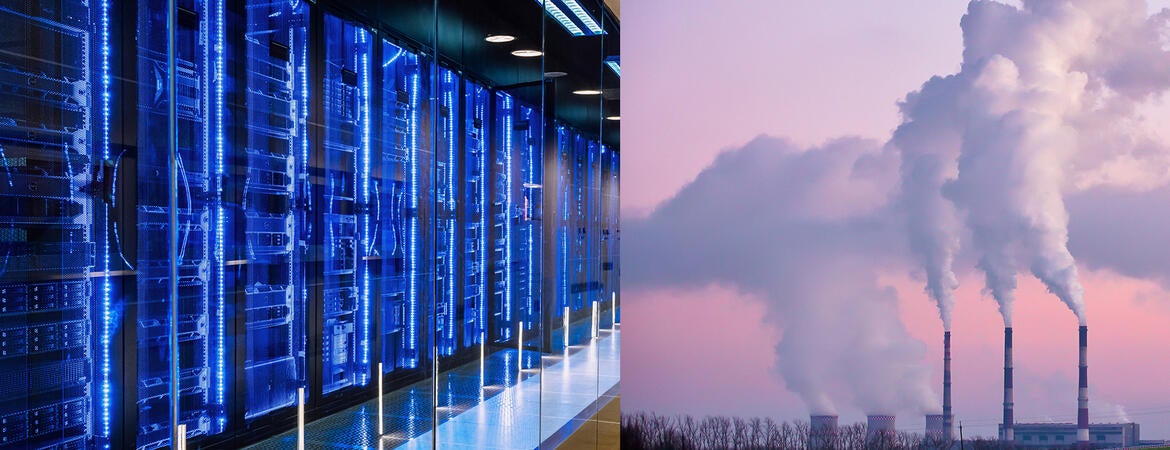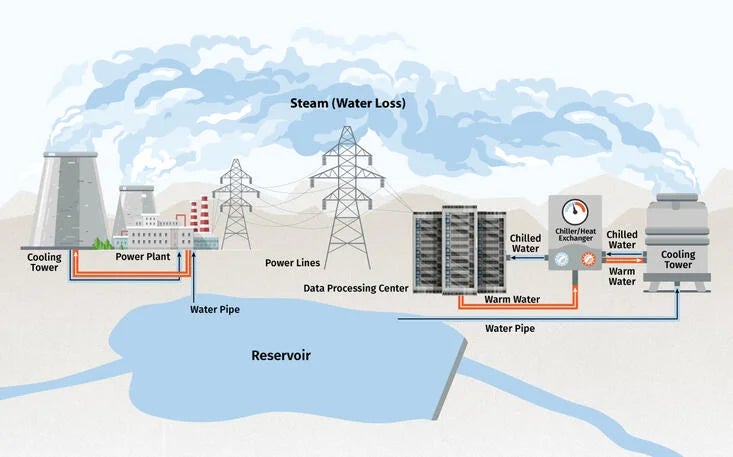
UC Riverside professor Shaolei Ren served on a United Nations panel this week for a UN committee that is probing the environmental impacts of the rise of artificial intelligence, or AI.
The panel on “artificial intelligence governance and environmental impact considerations” was assembled by the UN Environment Programme for a subgroup of the UN Environment Assembly’s Committee of Permanent Representatives, which is meeting in Nairobi, Kenya. The panel was hybrid, and the panelists could attend remotely.
Early Tuesday, July 9, Ren presented at the meeting his research that has quantified AI’s environmental footprints including carbon emissions and water consumption and he outlined his perspectives to implement AI with the least environmental consequences.
“It’s a great honor to be part of the panel,” said Ren, an associate professor of electrical and computer engineering in UCR’s Bourn’s College of Engineering. “I’m excited to see our research is helping the world build more efficient and sustainable AI.”
Increasing computer processing demands from AI is compelling Google, Microsoft, and other Big Tech companies to build more warehouse-sized computer processing centers, which use large amounts of electricity to run thousands of servers and consume great volumes of scarce freshwater to keep the servers cool. Additionally, the environmental footprint associated with the supply chain of AI computing is enormous.
Other panelists at UN meeting included Antonia Gawel, Google’s director of sustainability and partnerships; Vlad Coroamà, founder of the Roegen Centre for Sustainability; and Melanie Stolzenberg-Lindner, head of the AI unit for Germany’s Federal Ministry for the Environment, Nature Conservation, Nuclear Safety and Consumer Protection.
Ren also recently learned his paper “Making AI Less Thirsty” was officially accepted for publication in the magazine Communications of the ACM, which has the highest impact factor among all the ACM publications.
When the paper was published online last year, it received worldwide news coverage and prompted calls to address AI’s water footprint along with other environmental costs from several entities, including the UN’s Educational, Scientific and Cultural Organization (UNESCO); the World Health Organization; Organisation for Economic Co-operation and Development; World Economic Forum; Government of Canada; Government of The Netherlands; UK Parliament; and Stanford Human-Centered AI.
An article in the Financial Times about his paper was picked for the newspaper’s education program in which nearly 5,000 primary and secondary schools worldwide use the newspaper’s articles for classroom lessons.
Another paper by Ren, “A Dataset for Research on Water Sustainability,” recently received the Best Notes Paper Award from ACM e-Energy ’24, the conference of ACM SIGEnergy. The paper provided open-source water efficiency datasets for 58 major cities in the U.S. to accelerate research efforts in water sustainability.
Ren also has been invited to give a TED talk on AI in Vienna, Austria, in October.
.
Stock cover photos by Getty Images





